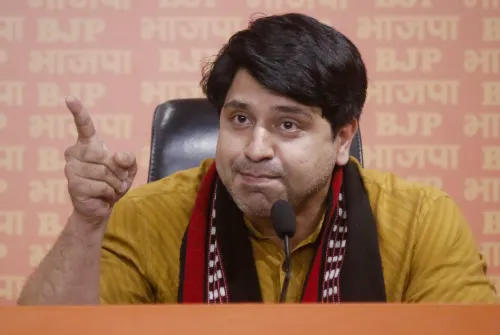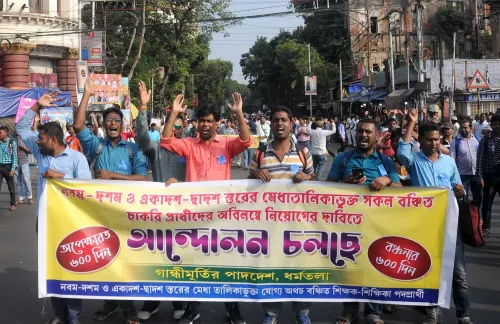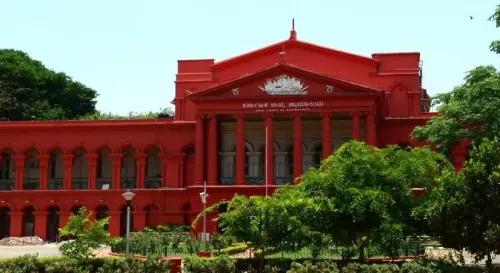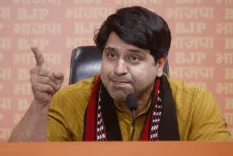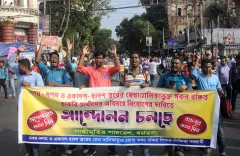What Insights Did the Tripura Assembly Delegation Gain from Gujarat?
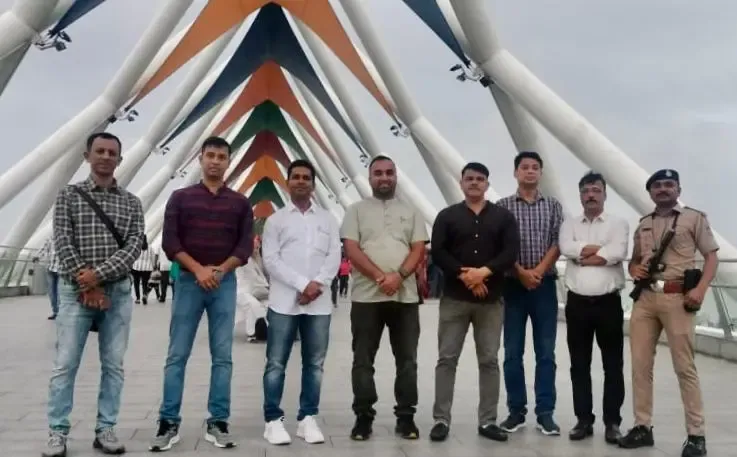
Synopsis
Key Takeaways
- Urban Planning: Insights into effective urban development strategies.
- Citizen Welfare: Learning from welfare programs that enhance quality of life.
- Infrastructure Development: Understanding large-scale infrastructure projects.
- Rural Development: Exploring irrigation and conservation efforts.
- Renewable Energy: Insights into renewable energy initiatives.
Ahmedabad, Oct 27 (NationPress) A delegation representing the Tripura Legislative Assembly has initiated a five-day study tour across Gujarat to explore the state’s exemplary development strategies and citizen welfare initiatives.
On the inaugural day of their visit, the delegation explored the breathtaking Sabarmati Riverfront in Ahmedabad, along with the Atal Bridge, Iskcon Temple, and significant locales along Ashram Road.
During this tour, members gained insights into the city’s urban planning, beautification projects, and infrastructure that have led to Ahmedabad being celebrated as the world's first UNESCO World Heritage City. The delegation is spearheaded by MLA Swapna Debbarma and includes members Manab Debbarma, Ramu Das, and Nayan Sarkar.
The team commended Gujarat’s holistic approach to urban growth and citizen-focused governance, acknowledging that the journey has imparted essential lessons for future implementation in Tripura.
In the following four days, the delegation will visit Somnath, Dwarka, and Porbandar—the birthplace of Mahatma Gandhi—to analyze Gujarat’s developmental policies, heritage conservation efforts, and welfare programs aimed at enhancing the quality of life throughout the state.
Gujarat stands out as one of India’s most progressive states, propelled by a dynamic model that harmonizes rapid industrial advancement with inclusive social welfare.
The state government has launched extensive infrastructure initiatives, including GIFT City, the Sabarmati Riverfront, and Dholera Smart City. It has also championed renewable energy, skill enhancement, and e-governance through schemes such as Mukhyamantri Amrutam Yojana, Mission Mangalam, and Kanya Kelavani, focusing on health, women's empowerment, and education.
Rural development has been fortified through irrigation initiatives like Sauni Yojana and water conservation programs such as Sujalam Sufalam Jal Abhiyan, while urban locales benefit from smart city initiatives and public transport enhancements.
Gujarat also excels in solar and wind energy, tourism infrastructure, and digital citizen services, establishing itself as a benchmark for balanced, sustainable, and people-centric governance across India.
The state is committed to innovation-driven growth with a citizen-first mindset. Its focus on facilitating business operations, modern infrastructure, and social equity has cultivated a robust ecosystem for both investment and public welfare.

